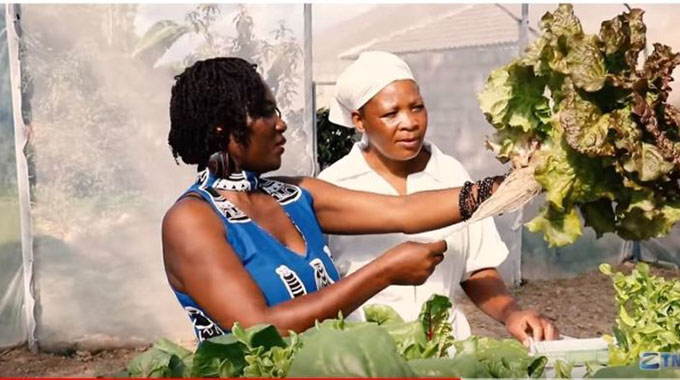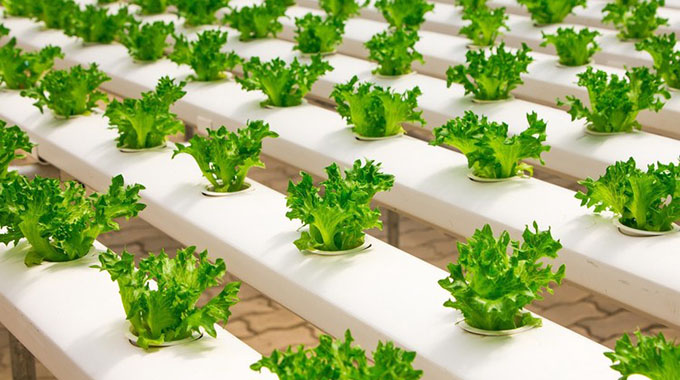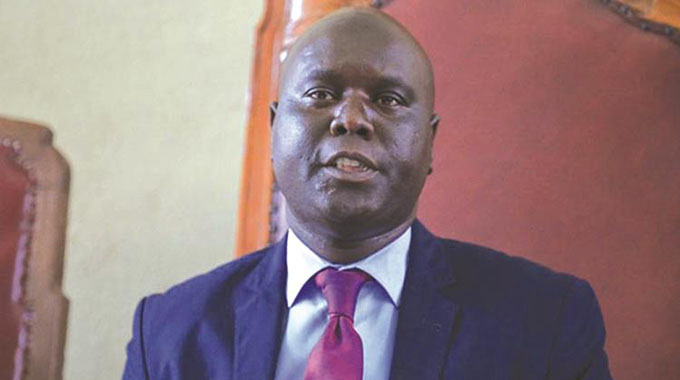Mukarati: Farmer with a difference . . . grows crops without soil

Talent Gore Lifestyle Writer
WHILE growing up, we knew that some climbers like the money-maker, could virtually be grown in a glass jar with nothing else, but a water solution.
It is unfortunate many people have not taken up this opportunity to grow plants this way. Hydroponics is the growing of plants in a water solution without soil.
There are many advantages to growing plants this way.
This technology came into being in the 1600s, was perfected in the 1940s and its uptake has been slow despite its many advantages.
Chief among them, is that it is easier to control soil-borne diseases and pests.
The use of hydroponics in Zimbabwe has the potential to revolutionise agricultural farming methods with regard to the technology and cost efficiency.
Taking into consideration the unstable weather patterns we are experiencing it would yield better results.
Hydroponics is originally defined as crop growth in mineral nutrient solutions and it is a subset of soil-less culture.
It is a system wherein roots are continuously or discontinuously kept in an environment saturated with fine drops (a mist or aerosol) of nutrient solution.
The method requires no substrate and entails growing plants with their roots suspended in a deep air or growth chamber with the roots periodically wetted with a fine mist of atomised nutrients.
In Zimbabwe, there are very few people who practice hydroponics farming due to a number of reasons.

A thriving hydroponics garden
Venencia Mukarati has managed to sustain her hydroponics farm in Harare.
She grows vegetables without soil just using water and she even trains others in the field too.
“Hydroponics is growing something without the use of soil, it uses water and some gadgets which are gullies which you will then use to grow the product,” she said.
“Just like any farming method, you need to know the nutrients and the water that you are going to use so you need to know the PH and take everything for testing.
“So if you take your water for testing you will know the PH of the water from 0 to 14.”
She said plants not only require nitrogen, phosphorus and potassium but also need micro-nutrients.
“There are so many nutrients that plants require such as calcium, magnesium, sulphur, boron, cobalt, copper, iron, manganese, molybdenum and zinc for healthy plant growth,” she presumed.
“Otherwise they will suffer from fungal and bacterial diseases. Thus the correct hydroponic fertiliser should be used which will supply nutrients in a ready form to the plants.”
People who do not understand what Venencia is talking about might say that her ideas are far-fetched, but she has had specialists to help her with everything.
She simply put her heart to it and began farming.
“I have got a passion for farming. I have been doing farming all my life and I enjoy it,” she said.
“Right now I am doing table grapes, green house tomato, lettuce, and greenhouse cucumber. When I started horticulture, I really wanted to grow grapes,” Venencia enthused.
“I love grapes so I would go into spar buy some grapes every time so one day I just thought why can’t I do grape farming and when I started doing it I saw that I was actually enjoying every single process.”So who is this amazing woman who has changed the face of farming?
“I started farming way back when I was just a little girl. I was born in Musana in Bindura and my parents were peasant farmers there, so that’s when my farming passion started,” she said.
“When I wake up in the morning I go into the greenhouse, I check if my water is there and with the instruments that I have I can check the PH of my water at the same time.
“When I come back in the evening I do the same thing again, I have my assistant who helps me, she is always by my side.
“She checks if the water is still there all the time, if there is a problem with electricity she just notifies me that there is no electricity.
“Given the electricity situation in the country, it is very difficult for us now, but during the day I use a generator then during the night I use electricity.
“I have started doing this commercially, it is no longer a hobby and I have been supplying different stores with my vegetables.”
Then again, life is not only about hydrophonic farming. It is a mixture of a lot of things, life has to be awesome and enjoyable.
“Apart from hydroponics I do a lot of things as a wife, a mother and I have so many things at home that I need to take care of,” she said.
“I have got chickens popularly known as roadrunners, I have plenty of mango trees and I have recently planted strawberries.”
Venencia said some farmers have gone large with this technology as it can easily be self-automated using computers.
“The system can easily monitor PH levels and nutrient status of the water medium, making alterations as need arises,” she said.
Finally, to others out there especially women, this is the new normal.
She concluded by saying hydroponics can be done by anyone if they really put their heart to it.
“To me as a pioneer of hydroponics farming in Zimbabwe, I have seen that it’s not even a challenge, for the women out there I want to tell you that this is very possible, we can do it.
“All we need to do is to learn how the system works and then you will be able to do hydroponics farming,” she concluded.









Comments